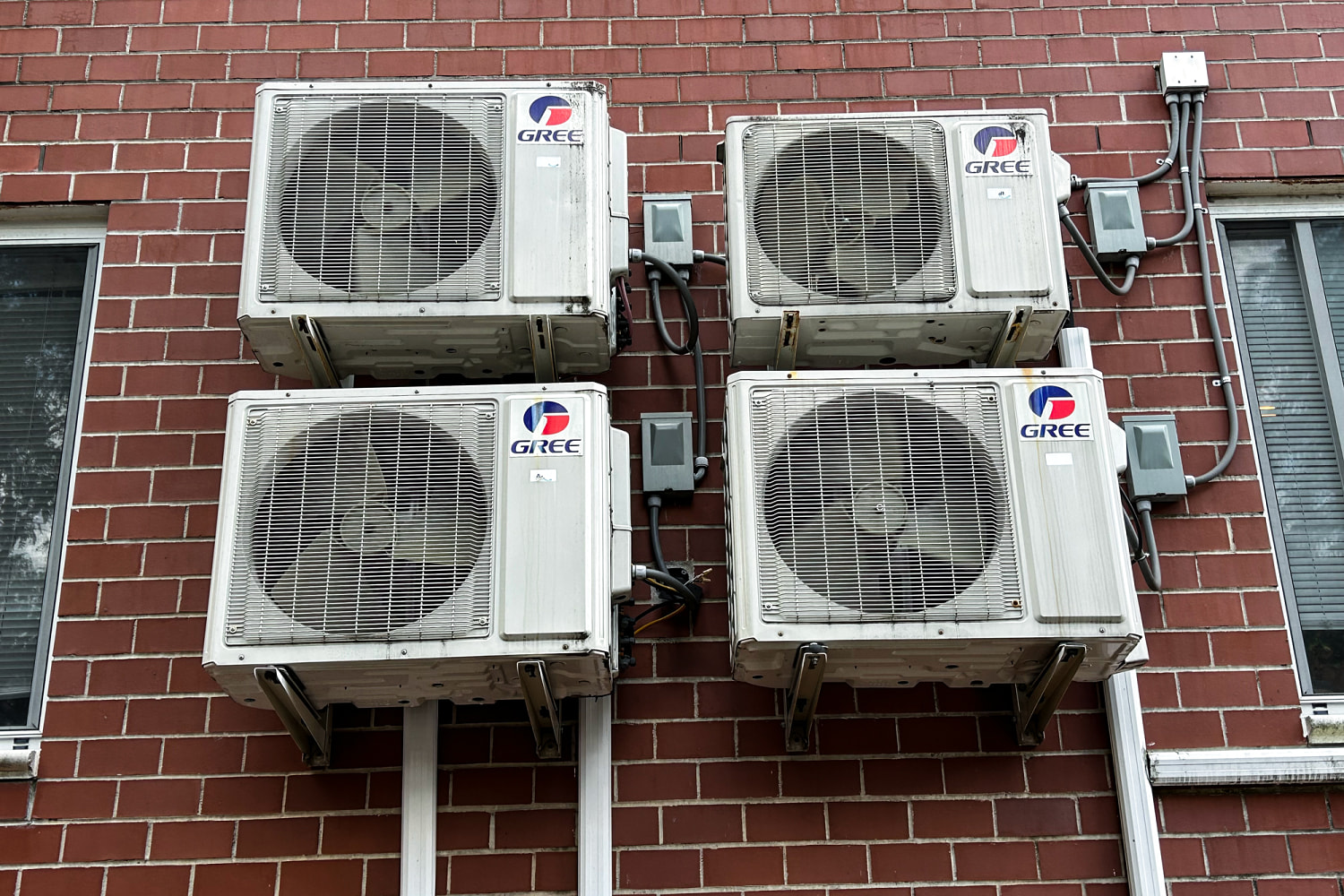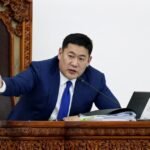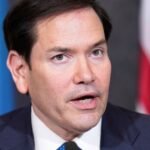Tariffs are threatening your air conditioning bill this summer

Many consumers will pay more for air conditioning this summer as President Donald Trump’s trade war collides with existing price pressures, a coolant shortage and scorching forecasts that are set to drive up utility bills.
“It is a sad time to need a new HVAC system,” said Scott Shelton, owner of Charlotte Comfort Systems in North Carolina.
Heating, ventilation and air conditioning contractors say they’ve been weathering higher costs since the post-Covid recovery, for everything from labor and raw materials to a newly mandated refrigerant. With supply chains stretching deep into countries facing new tariffs, HVAC firms say it’s impossible to avoid passing at least some of the higher costs on to customers.
Shelton estimates his expenses have already risen by 80% since the pandemic.
It is a sad time to need a new HVAC system.
Scott Shelton, owner of Charlotte Comfort Systems, Charlotte, N.C.
“It’ll affect lower and middle classes more than I’ve seen in my 38 years’ experience in this industry,” he said of ongoing and expected cost increases.
The prices U.S. manufacturers charge for HVAC and refrigeration equipment remain near the record highs they hit last summer, before Trump won re-election, and some contractors expect his levies to drive them higher.
Take a component that cost $1,000 in March, said Aydin Mehr, who manages Denver-based UniColorado Heating and Cooling: “Currently it’s going to cost $1,100,” he said. “In September, that same thing will cost $1,300 to 1,400.”
Adding to the expected squeeze are steeper utility bills for many households. U.S. residential electricity costs are forecast to average $784 this summer, up 6.2% since last season and the highest level in 12 years, the National Energy Assistance Directors Association (NEADA) said Thursday. An early heat wave is already baking the Southwest and Texas this week, with Oklahoma City, San Antonio, Austin, Houston and Dallas breaking May records.
Mehr voiced concerns about this summer. “We’re stockpiling like crazy to keep our prices low as long as possible,” he said, but his inventory is “already diminishing rapidly.”
Some top air-conditioner makers are responding to the Trump administration’s reshoring push, with Carrier on Tuesday announcing a $1 billion five-year investment to expand domestic production. Analysts say the HVAC sector is relatively well-positioned to handle tariffs, including on steel and aluminum. But the industry still relies heavily on overseas suppliers, and contractors say many American importers are already curbing shipments, unsure which tariffs will stick.
The United States imported more than $15 billion worth of air conditioners last year, about five times as much as it exported, according to the Observatory of Economic Complexity. Mexico and China — which currently face double-digit blanket tariffs — accounted for the largest shares of U.S. spending on AC imports, at 50% for Mexico and 19% for China. Analysts estimate less than half of Mexican-made HVAC equipment complies with the U.S.-Mexico-Canada Trade Agreement, the deal Trump brokered in his first term that spares some Mexican and Canadian goods from the 25% tariffs he imposed on them in his second.
Many suppliers, which typically purchase on 90-day schedules, had already halted ordering by the time the U.S. and China agreed Monday to pause most of their tariffs for 90 days, Mehr said.
“In the best-case scenario, we’re going to have a Covid-style type of thing where they’re going to be waiting months just to get their stuff,” he predicted.
A key factor is the industrywide shortage of R-454B, the more eco-friendly coolant that regulators began requiring in January under a bipartisan measure Trump signed in 2020. Mehr was expecting a major manufacturer to ship new heat pumps that use R-454B in mid-April, “but it still hasn’t shipped because they didn’t import the parts from China to finish them.”
We’re stockpiling like crazy to keep our prices low as long as possible.
Aydin Mehr, general manger of UniColorado Heating and Cooling, Denver
He foresees the worst of the refrigerant shortage to last until mid-June or early July, easing right around when supplies of budget to midgrade AC units may start to dwindle.
These fears may not pan out nationwide, or at all, but the coolant crunch is already driving up costs and delaying installations as manufacturers hike prices. Appliance giant Honeywell last month announced a 42% surcharge on R-454B, citing “the cumulative effect of increased costs and raw materials” amid strong demand.
Some HVAC contractors even accuse manufacturers of using supply-chain disruptions to price-gouge. Makers of cooling systems announced tariff-related price hikes “before it even became real,” said Barton James, president and CEO of the Air Conditioning Contractors of America. “The whole industry continues to test the waters on what’s the breaking point for the consumer. And right now, we’ve not found it.”
The Air-Conditioning, Heating and Refrigeration Institute called that allegation “offensive.” The manufacturing trade group’s members have their own concerns about the uncertainty posed by “on again/off again tariffs,” spokesperson Francis Dietz said in a statement. “Far from using tariffs as a cover to raise prices, manufacturers are going out of their way to minimize the economic impacts” and keep products affordable.
Home Depot acknowledged a “fluid environment” but declined to comment on specific product categories, and Lowe’s didn’t respond to a request for comment. Both home improvement giants report earnings next week.
A White House spokesperson didn’t respond to a request for comment.
The crunch comes as meteorologists anticipate above-average temperatures in much of the U.S. this summer, after 2024 became the hottest summer on record.
The National Weather Service forecasts excessive heat to generate hotspots from Maryland to Maine and Oregon to Texas. Parts of Utah, Nevada, Colorado and New Mexico are most likely to see hotter-than-average days over the next three months. With extreme heat exacerbated by climate change becoming more frequent, researchers say U.S. heat-related deaths have more than doubled in recent decades.
This year there could be less federal aid to help households keep their homes at safe temperatures.
Shortly after gutting the entire staff of the Low Income Home Energy Assistance Program, Trump proposed a budget that would slash the initiative’s $4 billion in funding to zero. LIHEAP was established in 1981 to help struggling families cover home heating and, later, cooling costs including AC installations. But it has been strained by what advocates describe as chronic funding shortfalls coupled with surging demand for summertime relief.
NEADA, which represents state officials who disburse LIHEAP aid, estimates that households facing utility arrears now owe a cumulative $21 billion, the most in four years.
“Without access to affordable cooling, many will be at risk of heat stroke and other health impacts associated with rising temperatures,” NEADA Executive Director Mark Wolfe said in a statement.
You may be interested

World Aquatics Championships 2025: Yu Zidi makes her debut at 12
new admin - Jul 27, 2025[ad_1] NEWYou can now listen to Fox News articles! Chinese swimmer Yu Zidi made her debut at the World Aquatics…

Trump says U.S. has reached trade deal with European Union as Aug. 1 deadline loomed
new admin - Jul 27, 2025President Trump announced Sunday that the United States and the European Union had reached a trade deal after high-stakes meetings…

Sen. Graham says there will be a ‘change in strategy’ in Gaza ‘to destroy Hamas’
new admin - Jul 27, 2025[ad_1] IE 11 is not supported. For an optimal experience visit our site on another browser.Speaker Johnson says a Ghislaine…






























